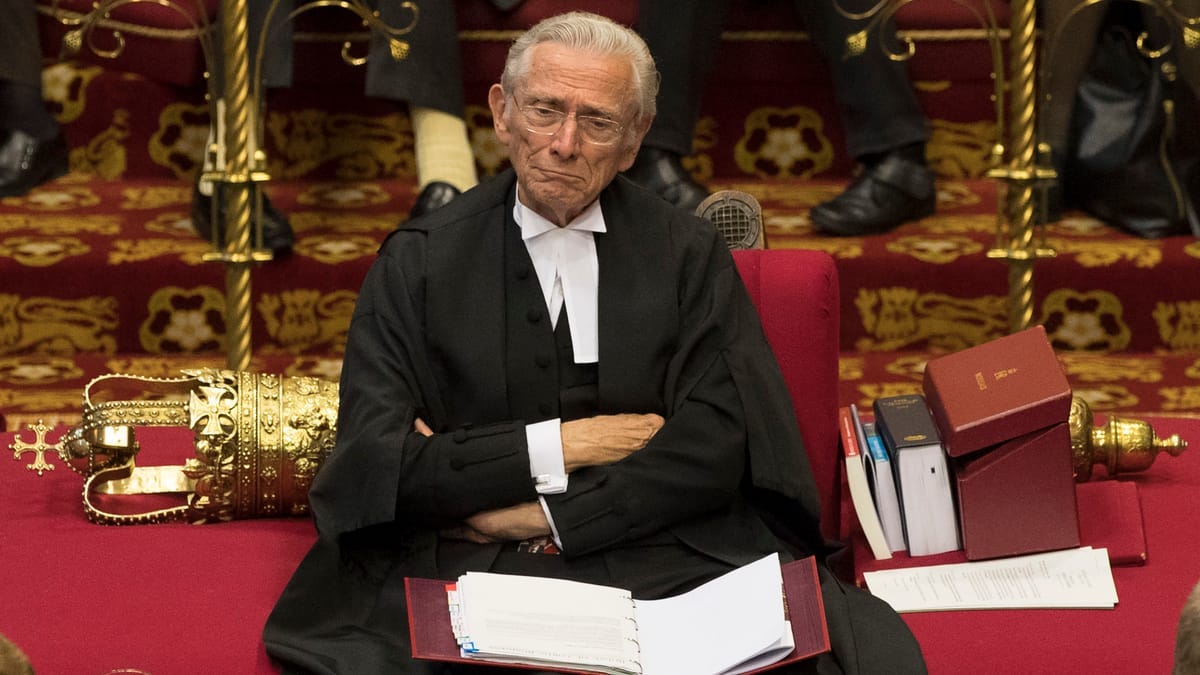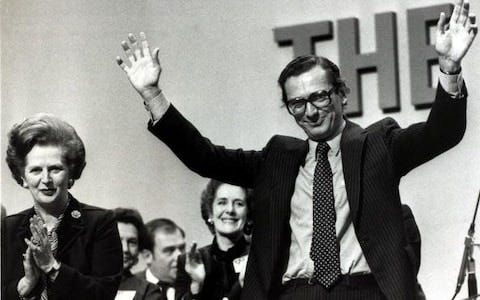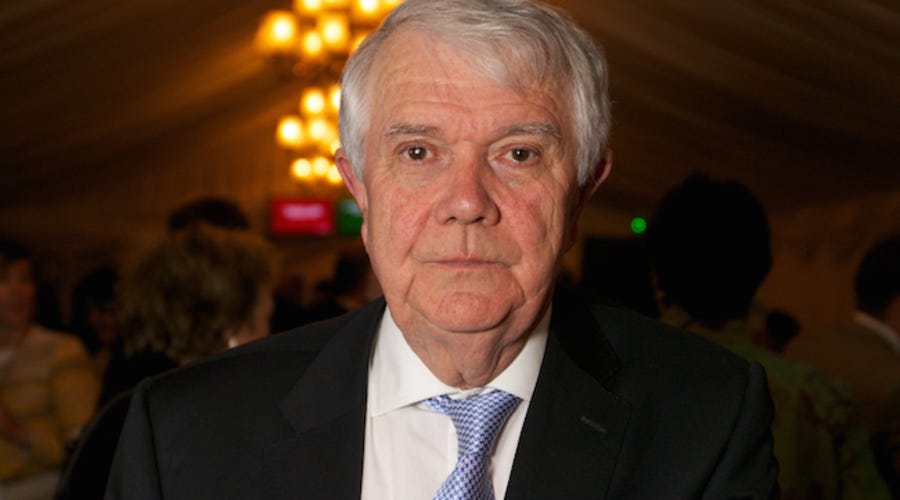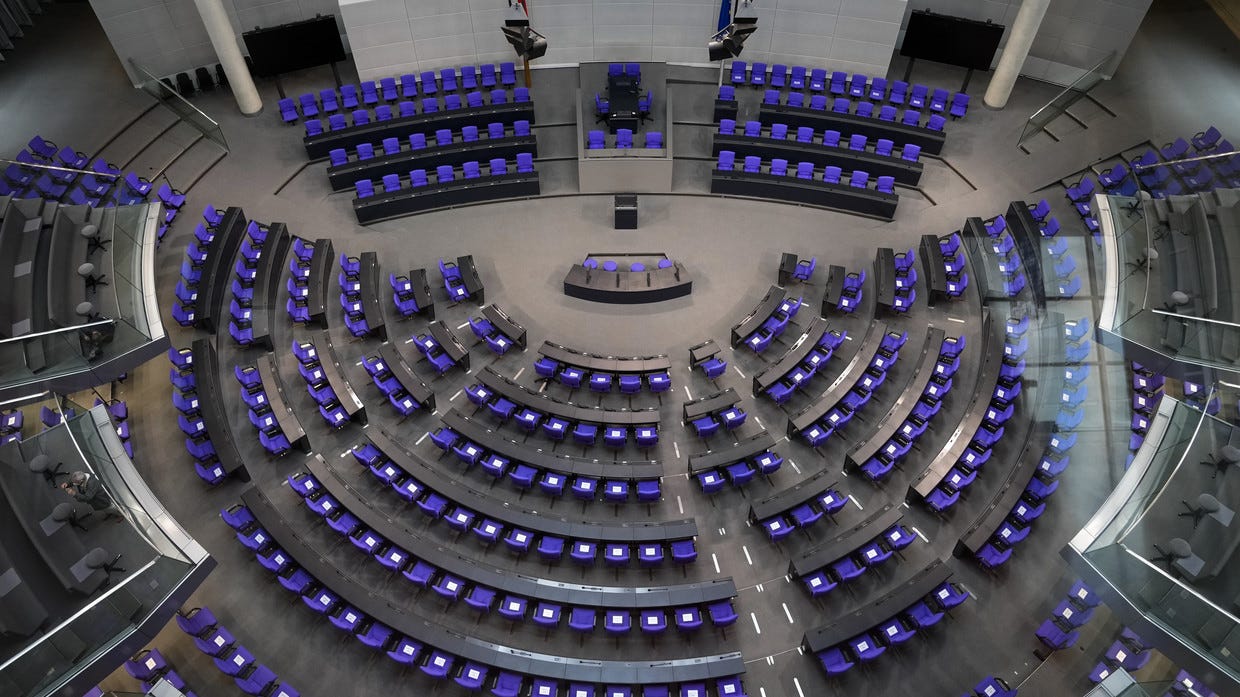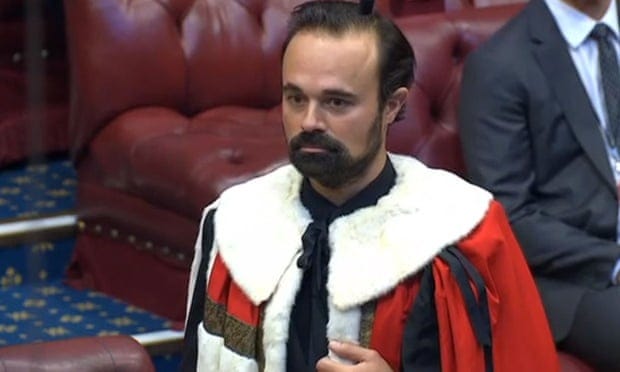Reforming the House of Lords in five minutes
A few thoughts on the subject of constitutional reform, prompted by a letter to The Times
I have—it will not surprise some of you to know—a lot to say about reforming the House of Lords. This is a subject which has perplexed, impassioned and perturbed the British polity for more than a century, and there is a great deal to unpick. I intend to do so reasonably fully at a later date, but while the issue has made the tiniest blip on the radar of public consciousness, I thought it was worth getting a few thoughts down and displayed for the reading public in advance of the heavy brigade.
Yesterday, a letter appeared in The Times from Lord Fowler, the former lord speaker of the upper house. He was the House of Lords’ titular head for five years, from 2016 to 2021, as the third act of a peculiar and unusual career: first as a cabinet minister (or at least attending cabinet) for all but 10 months of Margaret Thatcher’s long period in office, in charge of transport, social services and then employment; then as a shadow cabinet minister under William Hague’s diminished Conservative band, marking John Prescott’s super-department from 1997 to 1998 and then as shadow home secretary from 1998 to 1999. He stood down as MP for Sutton Coldfield in 2001, taking the customary peerage for politicians of his calibre, and 15 years later, when it was the turn of the Conservative Party to nominate the next lord speaker, after Labour’s Lady Hayman and the crossbencher Lady D’Souza, the unpredictable and slightly arthritic finger of fate pointed in his direction. He won by a landslide over Lady Garden of Frognal and Lord Cormack and was clearly a popular choice.
The lord speaker does not, despite the title, hold a position analogous to his longer established counterpart in the House of Commons. The Lords is a self-regulating chamber, and the occupant of the chair (or rather the Woolsack) does not select who will speak when two peers both rise, does not adjudicate on points of procedure, impose discipline on members of the House or have any role in selecting amendments to bills. The function of the lord speaker in the chamber itself is to put the question formally before a division, announce the result of divisions, and announce any “parish notices” to their Lordships.
More generally, the lord speaker represents the House of Lords to the outside world and acts as a kind of ambassador for its role and place in the constitutional arrangements. He also has an important role in the governance of the House, including chairing the House of Lords Commission, which provides high-level strategic and political direction to the administration, and taking formal responsibility for the security of the Parliamentary Estate from the perspective of the Lords.
I hold no brief against Norman Fowler. He was an effective minister under Thatcher, overseeing the passage of the Transport Act 1981 which made seat belts compulsory; as secretary of state for social services, he was responsible for the major public awareness campaign on AIDS in 1986; and as employment secretary he made a major contribution to modernising the operation of UK dockyards by abolishing the National Dock Labour Scheme, which had given the trades unions an absolute veto over dismissal and total control of recruitment. He should also be credited for coining the phrase “spending more time with my family”. When he resigned in January 1990, he wrote to the prime minister, “I have a young family and for the next years I should like to devote more time to them while they are still so young.” Fowler was in earnest but the language has become a masterpiece of euphemism.
Fowler’s letter to The Times concerned the size of the House of Lords, a matter which has occupied him for many years. This comes against the backdrop of Boris Johnson’s impending resignation honours list, in which he is expected to award peerages to many of his allies and supporters, some of them eyebrow-raising: it is rumoured to include Paul Dacre, editor-in-chief of DMG Media (parent of The Daily Mail), Nadine Dorries, the erratic and volatile former culture secretary, and Charlotte Owen, his former special adviser who is believed to be in her late 20s. Even before this list breaks cover, and before his political honours list released last month, Johnson had created 86 new peers in three years. By contrast, Theresa May only appointed 43 new members of the House of Lords between 2016 and 2019. David Cameron nominated 245 people in his six-year tenure, while Sir Tony Blair was the most open-handed, putting some 374 individuals in the Lords in his decade in power.
The former lord speaker makes a simple argument: there are too many peers, when the House has agreed its size should be reduced, and this bloated size is affecting the authority and reputation of the Lords negatively. Both are contestable assertions with which I disagree, and one rests on a simple falsehood.
Fowler writes, “In 2017 I set up an all-party committee under Lord Burns to explore how to reduce the size of the Lords to 600 members. Its proposals were overwhelmingly accepted in a debate by peers.” The Burns Committee—formally the Lord Speaker’s committee on the size of the House—did indeed produce a report in 2017 which concluded that the number of peers should be brought down to 600 (smaller than the House of Commons) by a “two-out, one-in” system, so that the losses to death and retirement would be compensated for by new appointment only by a factor of 50 per cent.
It was a modest enough proposal, which would have forced no-one out of the House against his or her will. It would, it is true, have significantly reduced the amount of patronage available to the prime minister and the other party leaders, as they would have been able to nominate only a very limited number of new candidates to the Lords. But many might think that no bad thing, and certainly a stricture bearable for the common good.
There is one problem with Fowler’s argument. The House of Lords did not accept the proposals of the Burns Report. On 19 December 2017, it debated them at considerable length, and there was widespread support (though it is interesting that few of those who believe the House should be smaller are prepared themselves to take the step of leaving). But the motion was simply to take note of the report. In effect—in procedural fact—all the House did was acknowledge that the report existed. Many peers may have endorsed it, but the House as a corporate body did no such thing. That it did is a misapprehension which I am afraid Lord Fowler and others have been perpetuating for nearly five years.
Is the Lords too big, anyway? The headline figure which tends to be used is 800, which, it is argued, far too large. (The current size of the House is 778, excluding those disqualified or on leave of absence.) It is, we are told, the largest upper chamber in the world, and second only in total size to the Chinese National People’s Congress, which has 2,980 members. That is surely an absurdity. Isn’t it?
It might be. But it is misleading. In fact, the average attendance by session of the House of Lords has never risen above 500. Over the past decade, it has been in the high 400s; before that, it was much closer to 400. Suddenly, that number seems more manageable and less disreputable. It is, after all, well below a full turnout in the House of Commons. The Bundestag, Germany’s lower house which attracts little opprobrium for its size or effectiveness, has 736 members. The Assemblée nationale in Paris has 577 deputies (in addition to a Senate of 348), while the Grand National Assembly of Turkey (a unicameral body) numbers 600. So in practical, everyday terms, the House of Lords is not forced to manage absurd or remarkable numbers.
One argument sometimes advanced, occasionally by officials as well as peers, is that the size of the House places an unbearable strain on accommodation. It is true that most peers have to share offices, and only a lucky few are situated in the main building of the Palace of Westminster. But balanced against that we should consider that peers employ far fewer staff than MPs and do not have to deal with the burden of constituency work. Moreover, it would seem, to be blunt, rather arse about face to determine the size of the legislature by the availability of office accommodation. If there is really a problem with proper administrative provision, it should be increased before the House of cut by an arbitrary number.
The final argument, one I will explore much more fully when I return to the subject of Lords reform, is that size is a canard, and always has been. It may only be die-hard traditionalists who deny that the upper house requires any changes at all, but for anyone who does desire reform in pursuit of greater accountability, representation or effectiveness, the size of the chamber is a minor matter. The issues of membership and powers are far more significant and, some would say, pressing.
So I dispute the very thrust of Lord Fowler’s letter to The Times yesterday. He is not a fool, though, elected in his late 70s, he is perhaps a little slower than he was in his heyday. And like a lot of older people, he is prone to idées fixes. But he has got the wrong end of the stick on the issue of size and, as a colleague used to say of some MPs, has thrust the pointy end into his ear. He is not alone in this. His successor, Lord McFall of Alcuith, a Labour former MP and select committee chairman, wrote to Liz Truss and Rishi Sunak in the summer as they battled for the premiership, warning them that the size of the Lords “undermines public confidence in our parliamentary system”. They could have been forgiven for having more pressing concerns.
But McFall misidentified the problem. What has damaged the reputation of the House of Lords (among other things) is the calibre and background of those nominated to it, especially in recent years. Four of Johnson’s recent nominees were rejected by the House of Lords Appointments Commission as unsuitable, and its chair, the venerable and respected Lord Bew, a Northern Irish peer and academic, complained that he and his colleagues were being placed in an “increasingly uncomfortable” position by some of the names presented to them. Scepticism had already been expressed at the peerages given to, for example, Evgeny Lebedev, a Russian-born media mogul whose father was a KGB agent, and Peter Cruddas, a banker and former Conservative Party treasurer who had been forced to resign after offering access to leading ministers in return for donations.
This, if anything, is the greatest reputational threat to the House of Lords. Members of the public do not give a fig if there are 600, 700 or 800 peers (if they even know), but they do, rightly, feel strongly about unscrupulous or disreputable men and women being gifted seats for life in our national legislature.
So let us murmur gently to Lord Fowler and his fellow travellers that they have missed the point. The “active” House of Lords is a reasonable size for a busy and effective revising chamber, and the voters do not care about its theoretical maximum unless prompted by leading questions. They do want to know that these people, placed in positions of power by a quirky system which is a legacy of our long constitutional evolution, are fit and proper. That is one real challenge for would-be reformers, and finding a solution would make our law-makers more respected and better at their jobs.

